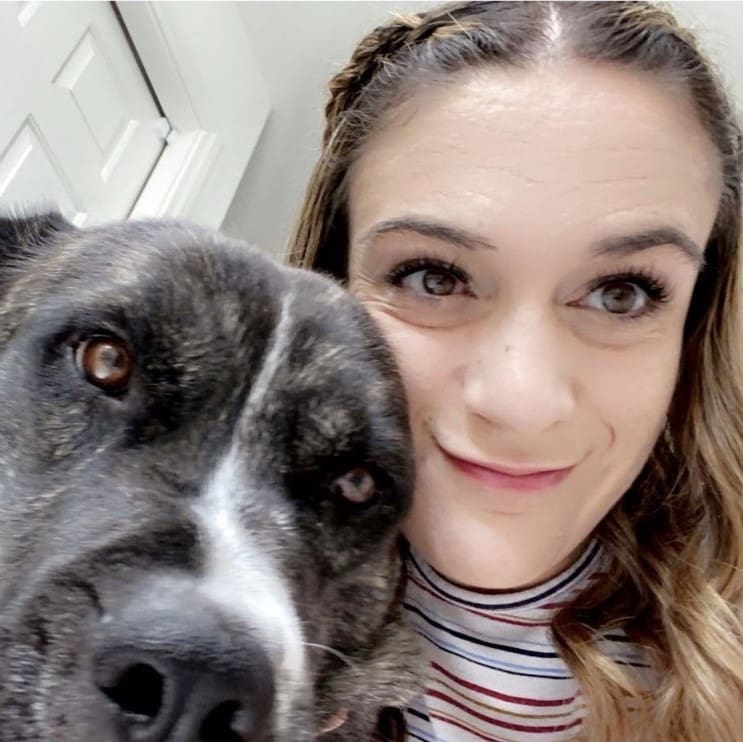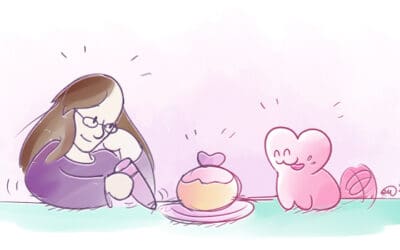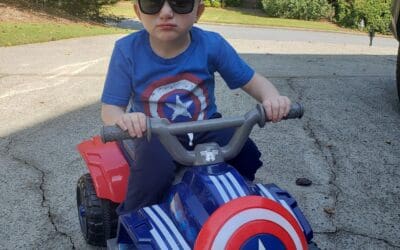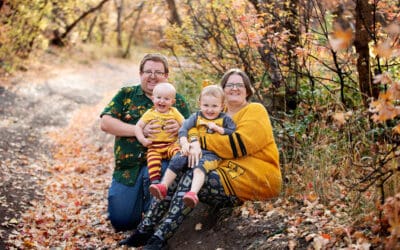Meet Roxy!
Hi, My name is Roxy, I have Alagille Syndrome, and live in Henderson, Nevada. Together with my mother, Firouzeh, and my father, Ramin, we are the Pakravan family. I also live with my trusted furry K9s, Hunter and Oliver.
I was 2 months old in July 1996 when my parents rushed me to the ER because of my jaundice. After a number of standard tests over a few days that didn’t render any definitive results, a liver biopsy was ordered to determine the cause and rule out Biliary Atresia. Two days later my parents received the call that I had Alagille Syndrome.
Right away, my new Hepatologist prescribed the standard medications available at the time: Actigall, Rifampin, Vitamin K, Liqui E, and MCT Oil. This also included monthly labs and Hepatologist visits several times a year. I was fortunate in being under the care of the most wonderful doctor who guided my parents and I through very difficult times. As a typical kid with Alagille Syndrome, I was not thriving and was always underweight. That, along with my extreme jaundice and scabs from constantly scratching myself to find relief from the unbearable itching, made me the victim of bullying at school, and strange looks from people who had no understanding, and at times clearly no compassion. But, I think all of that made me the strong, compassionate, empathetic woman that I am today.
I was around 6 years old when my mother started researching everything about liver transplants and reached out to doctors and surgeons at several institutions. Once again, we were fortunate to make connections with the doctors at Children’s Hospital Los Angeles (CHLA). By my 7th birthday, my Hepatologist let us know that I was close to end stage liver disease and that it was time for a transplant. Doctors at CHLA agreed and so the search for a suitable donor began. My parents immediately volunteered and underwent the screening process. My mother was a match, my father was not. In November 2003, my mother became my live donor. She was at USC Medical Center giving me life for a second time while doctors at CHLA prepared me to receive the gift. My mother’s operation completed successfully. Mine, however, ran into complications that required doctors stepping out of the operating room to advise my father and discuss the best course of action. After 11 hours under sedation, I was finally out of the operating room and in the Pediatric Intensive Care Unit for 2 weeks, before heading home the day before Thanksgiving.
The road to recovery was not easy. Following my transplant, over the next 24 months, I had two liver rejections, a stomach lining infection that required a feeding tube directly into my blood stream for over a month, and a severe case of anemia. But I pulled through, and once again, stronger for it.
I was in my second year of high school and by then we were under the impression that we were out of the woods when I was diagnosed with a rare eye condition. We were immediately referred to a specialist in Beverly Hills who said there is no term to define my condition. He wrote a research paper and presented it at several prestigious conferences in the hopes of finding a solution, but no one was able to offer any insights. I was included in another research paper a few years ago along with a group of Alagille patients, and very recently received more information about another research paper from Roberta Smith (ALGSA President). So, there seems to be a little traction in this area but not nearly enough. It seems that at this point stem cell therapy is the only option but that research has to take its course until actual treatments are approved and available.
I graduated from UNLV with a degree in Hospitality Management and currently working in Human Resources in an organization that serves adults with intellectual and developmental disabilities. Alagille Syndrome has affected all of us in so many different ways, and at the same, in so many similar ways. For me at this stage of my battle with Alagille Syndrome, I need to help raise awareness about the different eye conditions that have impacted us. I need to encourage those in power to do more research in this area, and I am grateful to the ALGSA for their efforts, and for being my advocate. My parents attended the very first ALGSA symposium in 1997 and have been members ever since. We have seen ALGSA grow and become stronger, build relationships with doctors, experts, pharma, researchers, and others with the single-minded goal of helping its community. To that end, we all need to do our part and through our collective efforts raise awareness for all of us with everything that we individually or as a community are going through, and to find that better treatment, that ultimate cure.




